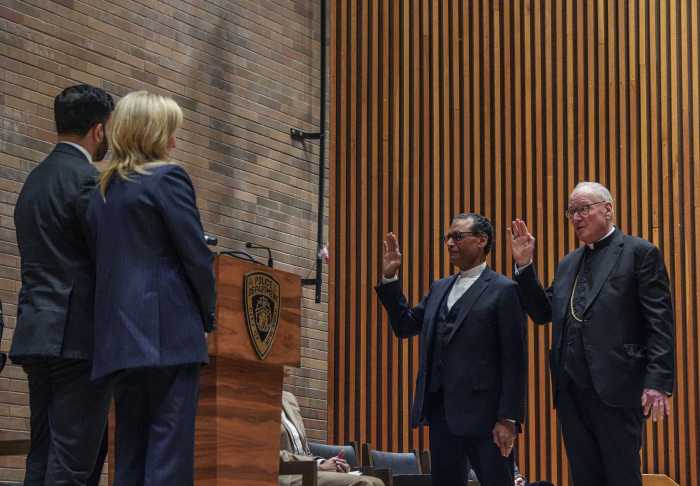During the course of “Wake Up,” the angsty, captivating bioplay written and performed by Spencer Aste, various alarm bells go off. And no, not those tinkly, melodic smartphone alarms, but shrill, jarring clangors loud enough to wake the dead.
And yet the distressed Spencer, figuratively speaking, fails to wake up.
That’s because the openly gay Mormon boy, who fled Salt Lake City and eventually landed in New York to pursue a stage career, has fallen under the spell of a party girl named Tina. Spencer explains, “Her given name is Crystal and she melts like ice. So, we hit on her to steam things up.”
Man, does she ever. For much of the 70-minute, intermissionless piece, Spencer recounts how Tina nearly wrecked his acting career, decimated his relationship with his partner, Erik, and obliterated his self-esteem. He was, in a way, sleepwalking through life like a cracked-out zombie, letting outside forces have their way with him.
This was not the best time to be asleep at the wheel. He had landed the titular lead role in a prestigious production of “Richard III.” Spencer recounts in wretched detail of becoming a meth addict, dealer, and a sex fiend cheating on Erik.
As Spencer tells it, Tina keeps throwing parties, distracting him from rehearsing “Richard III.” He must memorize “A lot of lines — different than the ones I snort.” Turns out he does more than snort, often injecting her directly into his veins. He’s prone to fits of crippling paranoia. On more than one occasion, he oversleeps and his understudy must take his place.
Not that the struggle with addiction is the entire play. There’s a series of flashbacks of key milestones, like when he got frisky with a buddy at sleepovers, joined a fraternity in college, had a girlfriend, and came out as gay to his parents. In fact, I would have preferred more explication of other areas of his life, such as the conflict between his homosexuality and his Mormon upbringing. The barrage of drug abuse scenes becomes overwhelming.
The drama of “Wake Up” is intensified by the novel, intimate staging by co-directors Eric Tucker and Kim Tobin-Lehl. The piece is presented in a black box theater space dominated by a circle of folding metal chairs, in the style of an AA meeting. There is no set to speak of.
Theatergoers can choose to either join the circle or sit in regular house seats. I recommend the circle, since that’s where the exuberant, disheveled Spencer holds court, alternately seated quietly recounting his story, standing on a chair flailing wildly, or running rings around the circle. Occasionally he interacts with audience members. At one point he plopped down in the empty seat next to me, and looked deep into my eyes.
Like most addiction tales, Spencer hits proverbial rock bottom, barely surviving a near-death episode. He shares lessons learned about unconditional love and family and forgiveness, tying up the saga in a too-tidy, rainbow colored ribbon.
But “Wake Up” is not just Spencer’s story. This evocative albeit imperfect piece delivers the message that no matter how horribly messy life can get, and how blind we might be to its causes, it’s not too late to finally rouse from our self-induced slumber.
“Wake Up” | Bedlam Theatre Company | West End Theatre | 263 W. 86h St. | $40 | Through September 22 | 70 min., no intermission





































